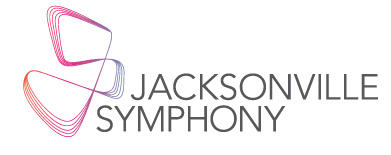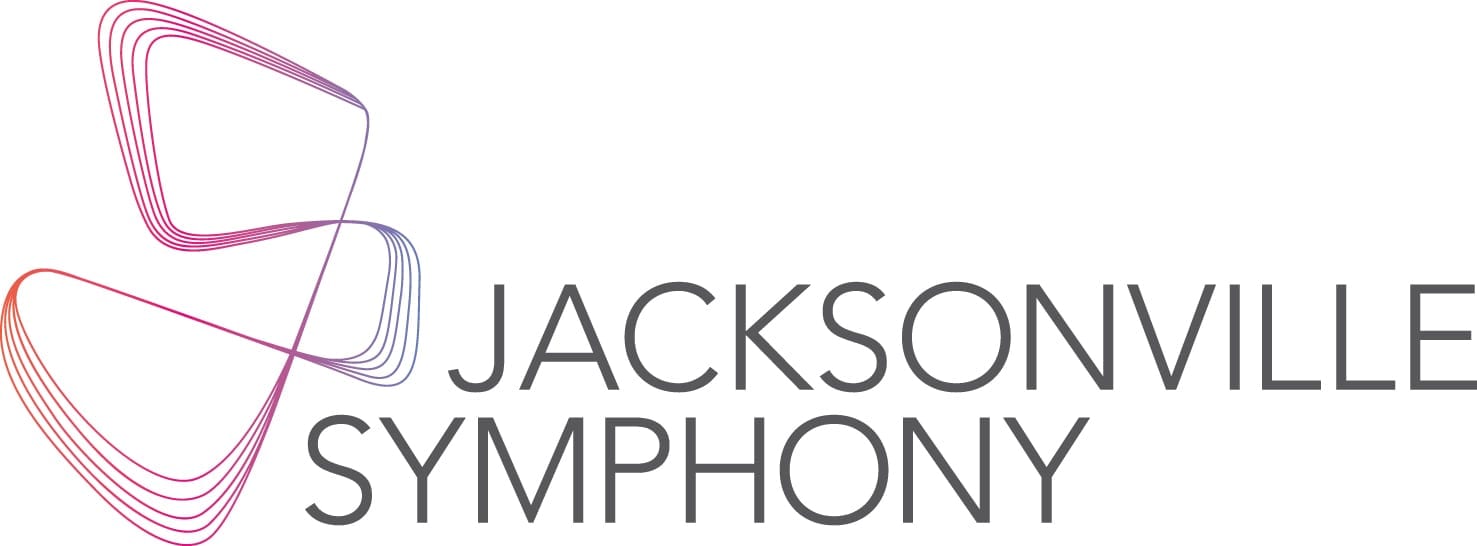Under the Spotlight
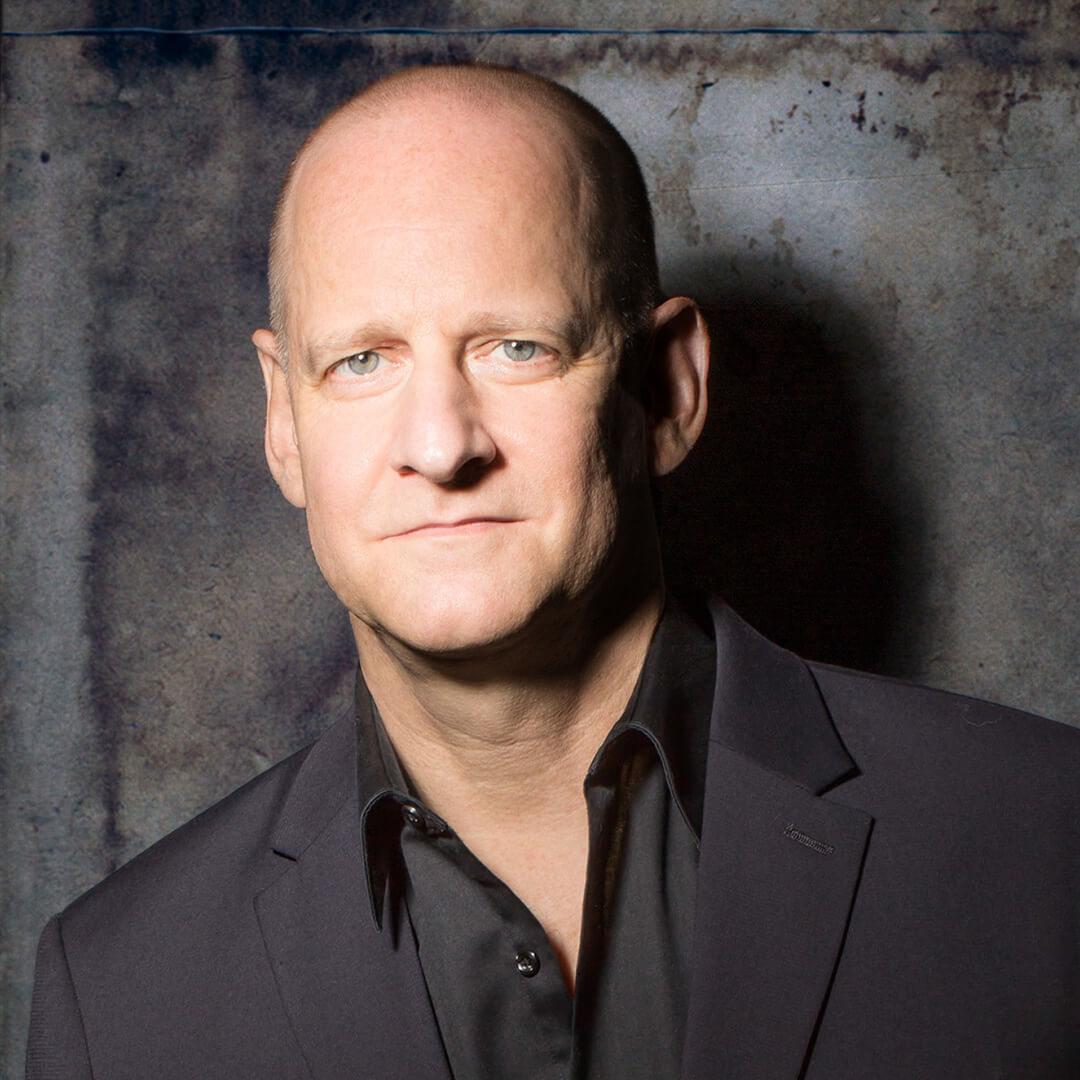
Breaking the Barriers to New Music and Q&A With Lowell Liebermann
Inside the Celebration
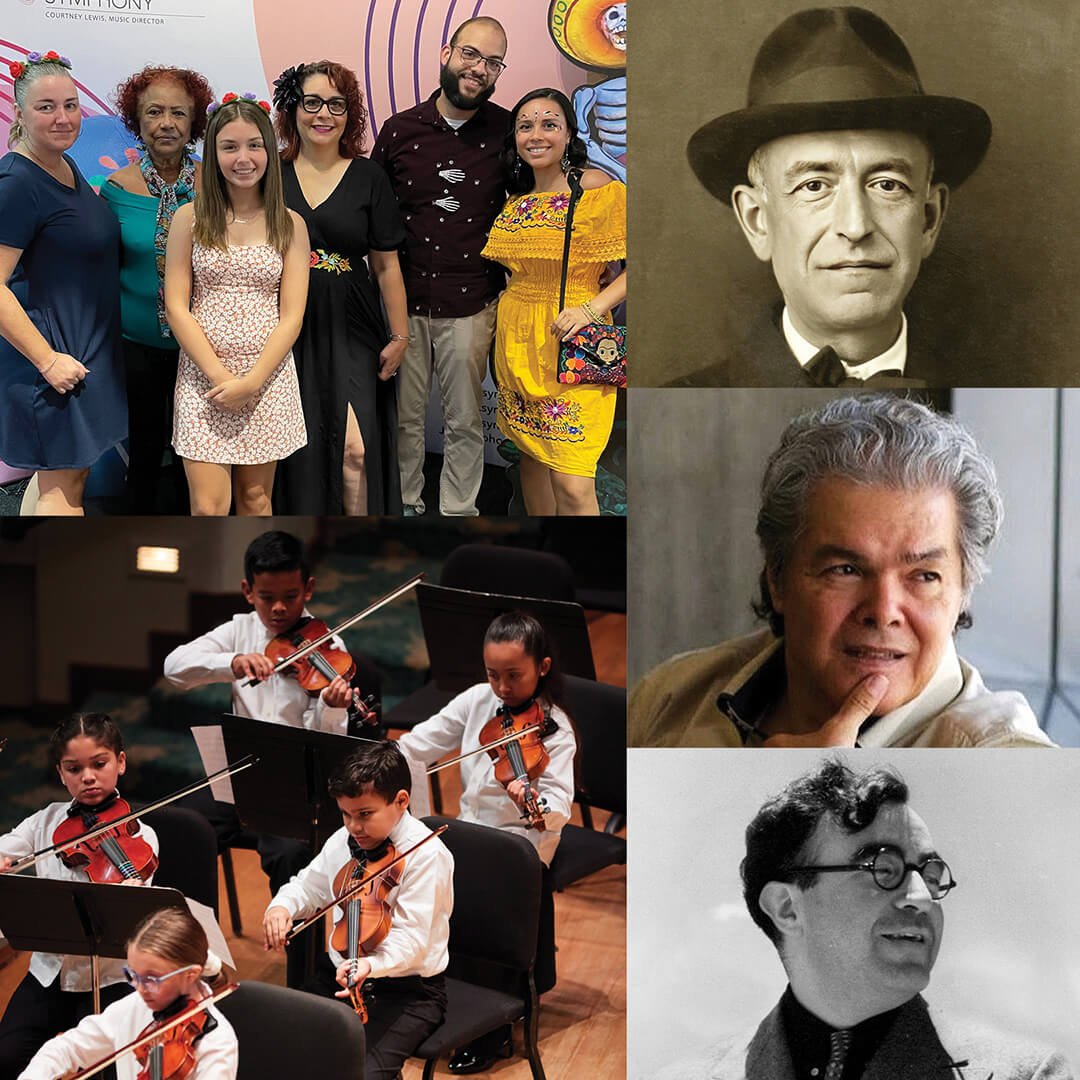
The Jacksonville Symphony Celebrates Hispanic Heritage Month
Behind the Bows
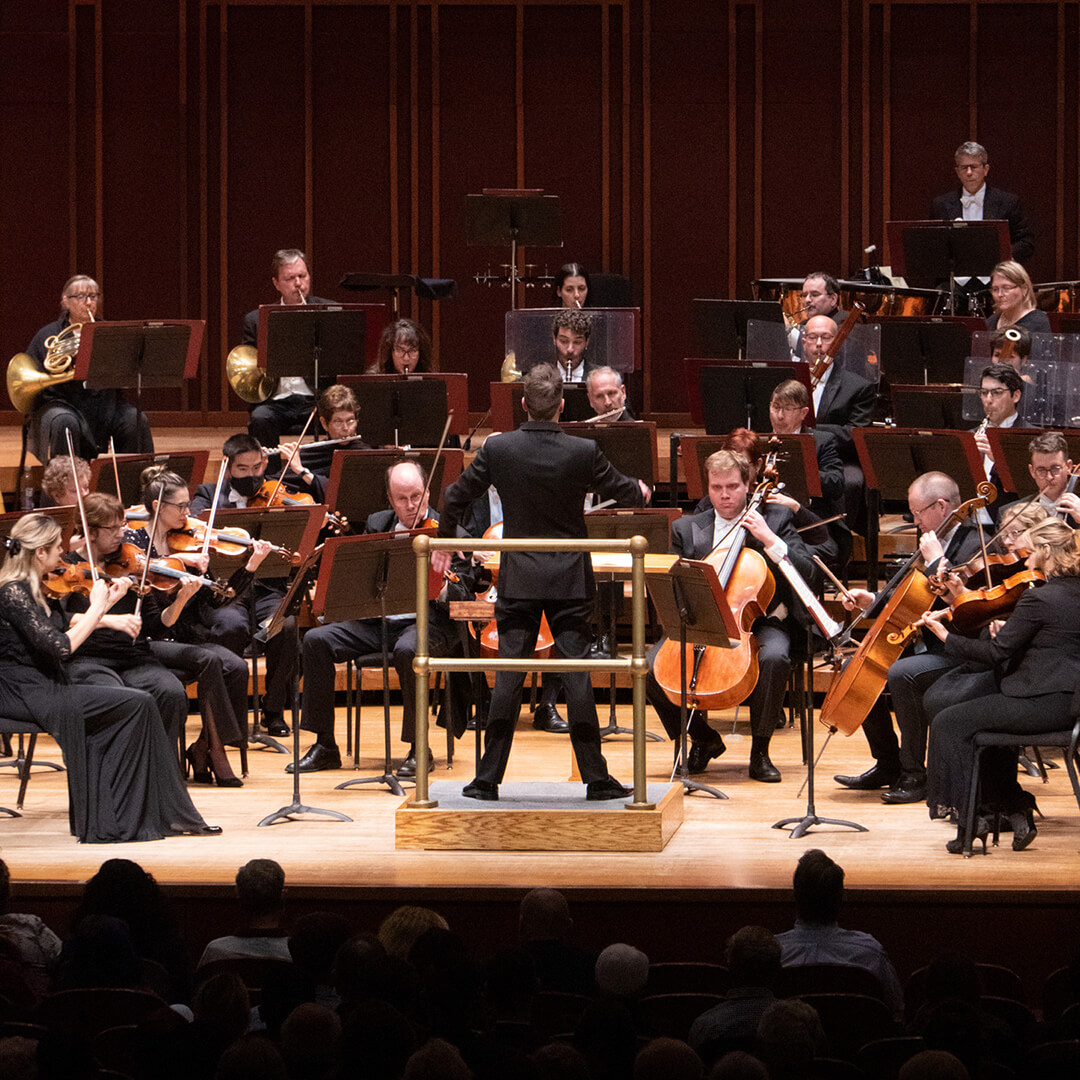
Welcome to New Musicians
Beyond the Barriers
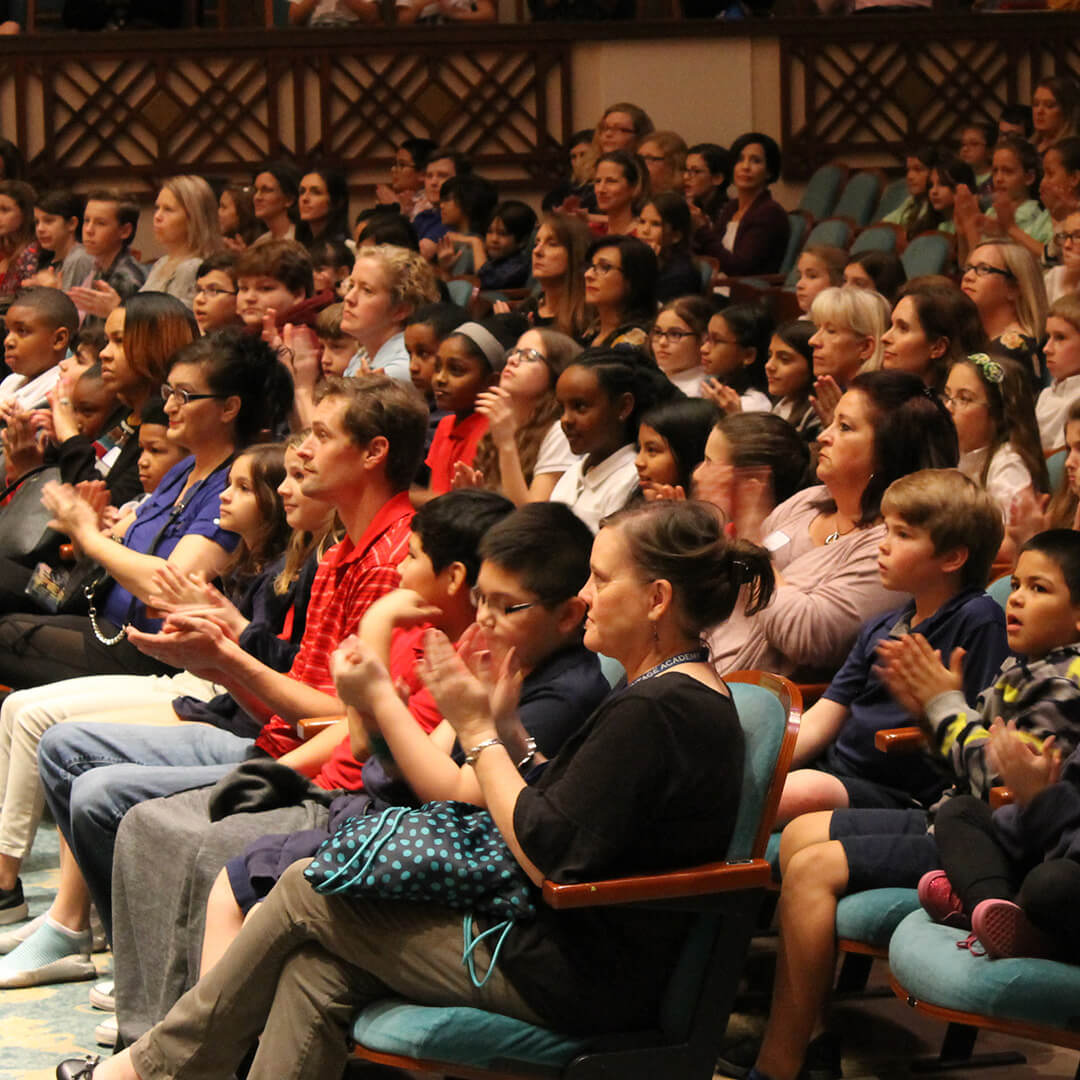
Preludes
Each fall and spring, thousands of students are transported to Jacoby Symphony Hall to enjoy live concerts performed by the Symphony. On October 3 and 4, the Jacksonville Symphony will perform the Preludes Concerts, which are catered towards students in Grades 1 to 3 to experience classical music performed in a live concert setting. These 50-minute performances are specially curated to engage children with all of the instruments and sounds of the orchestra with musical learning moments in a fun and entertaining setting. For more information about Preludes, contact Dr. Marianne Rice at mrice@jaxsymphony.org.
Along for Every Song
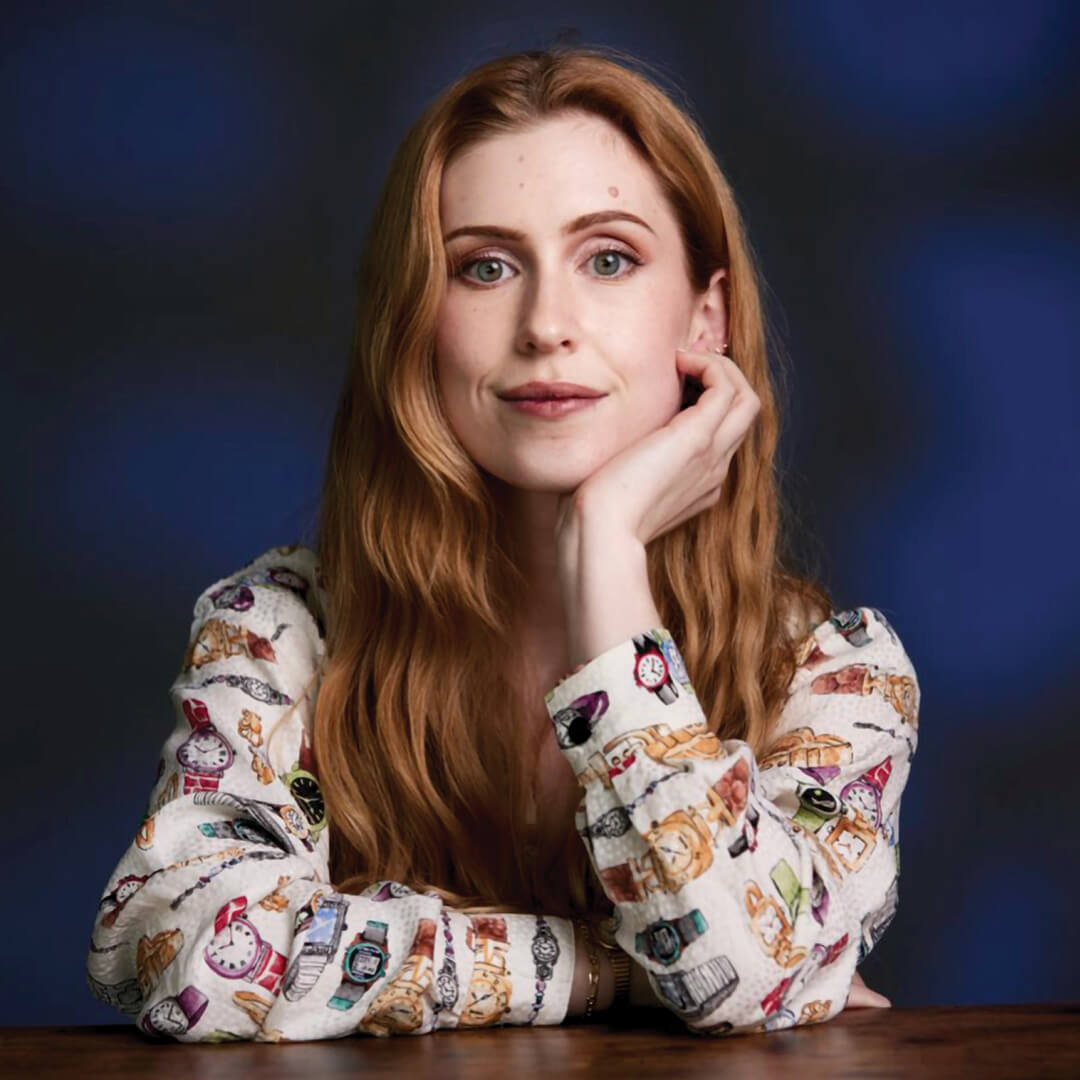
Haley Cox
1.) Tell us about yourself and your position at the Jacksonville Symphony.
"I have a classical musical background and hold two degrees in performance, so I feel really lucky to be able to work in a field that I love! My role in the Symphony is focused on the community as a whole and falls under both the Education and Marketing departments' umbrellas."
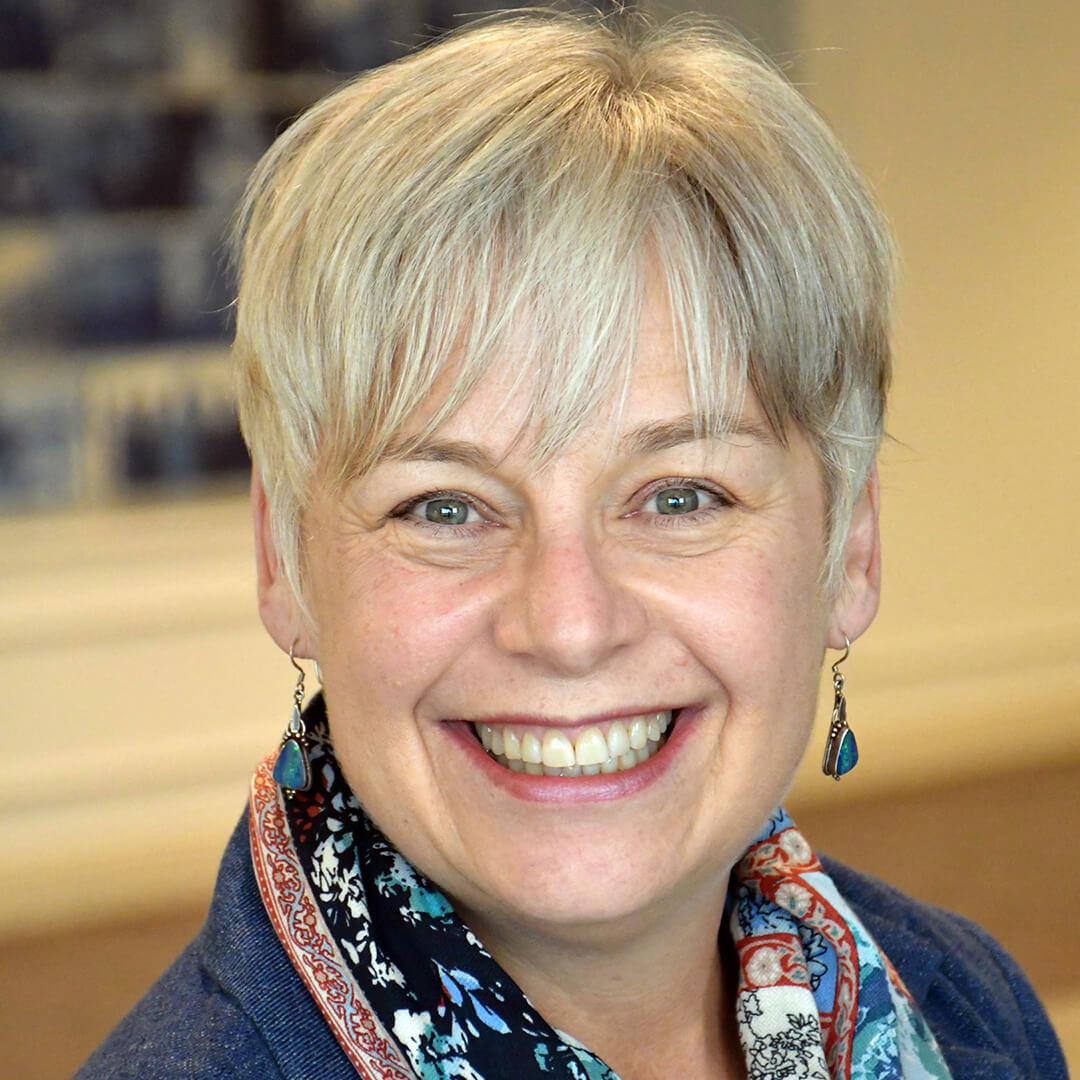
Mary Waldroff
1.) Tell us about yourself and your position at the Jacksonville Symphony.
"I am a third generation Floridian and have over 20 years of experience in nonprofit and commercial business management. The bulk of my career has been spent in the arts, and I have managed art galleries, owned an art gallery, worked for two university art museums, was Program Director for a community art center and was the city Arts Administrator for Casselberry, Florida."
Under the Spotlight
Breaking the Barriers to New Music and Q&A With Lowell Liebermann
 The Jacksonville Symphony has embarked on an exciting, multi-year project to premiere original works commissioned from today’s most exciting composers. The 2021/22 Season saw the first of these works with Trances, a full symphonic piece by Tarik O’Regan. In this season’s remarkable lineup of historic masterpieces, new music makes history of its own with not one but two world premieres. First up is Lowell Liebermann’s Organ Concerto, a perfect match for GRAMMY® Award-winning Paul Jacobs, who brings his awe-inspiring genius to the colossal Bryan Concert Organ. Later in the season, Courtney Bryan returns for the world premiere of another Jacksonville Symphony commission, showcasing her virtuosity as “a composer of panoramic interests” (New York Times).
The Jacksonville Symphony has embarked on an exciting, multi-year project to premiere original works commissioned from today’s most exciting composers. The 2021/22 Season saw the first of these works with Trances, a full symphonic piece by Tarik O’Regan. In this season’s remarkable lineup of historic masterpieces, new music makes history of its own with not one but two world premieres. First up is Lowell Liebermann’s Organ Concerto, a perfect match for GRAMMY® Award-winning Paul Jacobs, who brings his awe-inspiring genius to the colossal Bryan Concert Organ. Later in the season, Courtney Bryan returns for the world premiere of another Jacksonville Symphony commission, showcasing her virtuosity as “a composer of panoramic interests” (New York Times).
In its commitment to the living symphonic art form and commissioning new works, the Symphony will host its inaugural Living Composers Seminar on Wednesday, September 27, from 6:30-7:30 p.m. There will be an intimate discussion and presentation by Music Director Courtney Lewis, Associate Conductor Kevin Fitzgerald, Assistant Conductor Grant O’Brien and award-winning composer Lowell Liebermann. The Living Composers Seminar will focus on three key aspects of music that help with processing sound: rhythm, harmony and orchestration. Through discussion and examples, the group will share insights and personal experiences to help dispel barriers to embracing a new paradigm of classical music. There is no cost to this exclusive Jacksonville Symphony event, but a ticket is required as spaces are limited. To reserve tickets, visit JaxSymphony.org or call the Box Office at 904.354.5547.
For a sneak peek at the discussion, internationally acclaimed composer Lowell Liebermann has answered some popular questions about his Jacksonville Symphony commission, Organ Concerto, and shares his background as one of today’s leading composers.
How did you get into music and writing your own pieces?
“I started piano lessons when I was about eight years old, which is a little bit late. A lot of concert pianists start by the time they're five or younger. Almost immediately, I started spontaneously composing. I couldn't even read music well at that point, and I would guess where to put the dots on the paper. Years later, I came across some of these earliest attempts and absolutely couldn't decipher what I meant. When I was 13, I announced to my parents that I wanted to be a composer. My first composition teacher was Ruth Schönthal, a pupil of Paul Hindemith. The first piece that I kept in my catalog, and which has been published and recorded, and gets performed every now and then was my Piano Sonata No.1, Op.1, which I wrote at the age of 15.
From then on, everything I wrote has stayed in my catalog. After high school, I went to Juilliard, got all three of my degrees there and have been a composer ever since. A lot of my early love of music - and there is an organ connection here - came from the music of Johann Sebastian Bach. My first exposure to Bach was an album my mother constantly listened to called Switched-On Bach by Wendy Carlos. This was the first time that classical music was performed on the synthesizer, and it was a big crossover hit in the late 60s. A lot of Bach’s music is for the organ, so I was very conscious of the organ as an instrument from an early age.”
How would you describe your composition style, and are there any strong musical influences on this particular piece you’ve written?
“In terms of composition style, the Organ Concerto is very consistent with the rest of my pieces. I've always seen my works as being part of the western classical continuum of music. I never intend for my music to be a radical break with what's happened before it. To me, the whole history of music is a very enriching tradition, and my music often makes references to other composers, styles and techniques. This piece being an Organ Concerto, there is such a weighty organ tradition, beginning with composers like Dieterich Buxtehude and Johann Jakob Froberger and Bach and going up to the present to Olivier Messiaen. That’s something you have to reckon with as a composer. With Bach being one of my all-time great musical loves, there's a lot of that inspiration in this piece—not that I'm imitating Bach, although there are certainly moments that are references to his works, kind of sly nudges. There are references to fugal writing and all kinds of techniques that are associated with organ music. I find all of that to be very enriching and fun to use when I'm composing a piece.
In my music, there usually is no extra-musical inspiration. It's not about sunsets, political events or things of that sort. It's about the manipulation of the harmonies, the melodies, the musical materials I'm using and the abstract emotions that those evoke in the listener. I do stress that these are abstract emotions. I often compare it to working with emotions the way an abstract painter would work with colors. A lot of people have called me a Neo-Romantic composer, which is a label I disagree with. When most people say Neo-Romantic, what they often mean is tonal or melodic. While my music often does use tonality, it also uses whatever materials I feel like using, whether tonal or not. I consider myself to be more of a Neo-Classicist if anything, because, for me, the whole idea of programmatic music and music being about things is a more romantic concept. My music is just about the notes, which is a more classic approach.”
Can you talk about the unique power of the organ as an instrument and how your piece highlights its versatility?
“When you sit down to write a concerto of any kind, you have to seriously think about the instrument, what it can do and what you want to do with it. One of the things I realized was that the whole concept of virtuosity is different in an Organ Concerto than in concertos for other instruments. For instance, we all know what “virtuosity” means in a Piano Concerto: that there are millions of notes, and there's a certain amount of technical difficulty. It doesn't work the same with organ because if you have millions of notes in one passage, you basically can't hear them. It almost turns into white noise. Some of the most impressive moments in the organ repertoire are when there's just a big, powerful held chord - like in the Saint-Saëns Third Symphony - and that is of no technical difficulty whatsoever. As a composer you question, “well, what is virtuosity in terms of the organ, and what do I want to bring to this?” What the organ does have that pianos don't are the multiple keyboards. You can do all kinds of intricate interlocking figures on two keyboards that would be impossible to play on one. There is a lot of utilization of that in my piece, which was very fun to write.
I am a keyboard player, and I did compose the piece at the organ, which was very helpful. Every organ is different in terms of the registration and even the number of keyboards. Some of them will have three or four, and the big organs can have five or more keyboards. The available sounds and different stops are also different with each organ. Then, there is the additional question of, “what do these different stops sound like in the acoustics of the particular hall that organ is in?” There are so many variables in terms of balance and what is going to sound good on a particular organ that you can't make definite choices until you are in that room with that organ. I indicated almost nothing in terms of registration for this piece. I've left most of those decisions up to the fantastic organist Paul Jacobs, who will be premiering this piece.”
What drew you to the organ and what inspired you to write compositions for it?
“While the organ has not exactly fallen off the map, it has declined a lot in use as a concert instrument. People used to typically hear organs in churches, and of course, a lot of the repertoire comes out of liturgical music. A lot of churches now don't have organs, and a lot of concert halls who used to have magnificent organs don't have them anymore. One of the things that makes the Jacksonville Symphony so special is that you have this magnificent organ, and it really is an instrument unlike any other. My very first commission was a solo organ piece for a fellow student at Juilliard. I have since written for organ in the context of orchestral pieces. My Second Symphony has a prominent organ part as well as a couple of other orchestral pieces, but I never wrote a solo work dedicated to the organ again, until now.
I have a very close friend by the name of Tali Mahanor, who also happens to be a friend of Paul Jacobs. Tali is one of the greatest piano tuners and experts on pianos and organs. About 15 years ago, she gave me an Allen digital church organ as a gift in the hopes that it would inspire me to compose more for the organ. This is something I always intended to do, but the opportunity never came up. When you work as a composer by profession, you have to write what people commission, and I'm busy enough that I usually do not have the time to just sit down and write a piece because I want to. So, when the possibility of an Organ Concerto for Jacksonville came up, I was absolutely over the moon knowing I could finally write this piece. The Organ Concerto is dedicated to Tali in gratitude for her friendship and her gift of the organ.
Another interesting thing about the whole concept of the organ concerto and why there aren’t a huge number of them is because it’s not that often that you get an orchestra presenting the organ as a solo instrument. There are pieces of course, but it's not comparable to the Piano Concerto repertoire, for example. Another thing is a lot of these pieces are not called concertos. They're often called things like Symphony for Organ and Orchestra or Concerto Symphonique, rather than just Concerto. I think the reason for this is that the organ is almost an orchestra in itself. The whole concept of a concerto, which is usually one tiny soloist up against a big orchestra, becomes obscured by the fact that you have an instrument that can be the equal in volume, variety of tone and color and other aspects to an orchestra. Therefore, writing an organ concerto is a very different process than writing, say, a Violin Concerto or a Piano Concerto.”
If you had just a brief moment to capture someone’s curiosity about your music who has yet to hear it, what should they listen for in the upcoming performances of the Organ Concerto?
“That's always a difficult question for me to answer because I never want to tell people what they should expect when listening to my works. I would much rather people listen to the music as it unfolds and see what they feel rather than having this fear that they have to listen for something, and if they miss it, they're not getting the piece. I encourage all to simply sit back, relax and enjoy the music.
I will say that this Concerto is a large piece in four movements, about a half hour in length. The first movement, titled Chorale-Prelude, is expansively melodic, with references to Baroque music (Bach in particular) and fugal elements. The second movement is a sardonic Dance, almost like a Scherzo. The third movement, Aria, is, in a way, the emotional core of the piece. This leads, without pause, into the fourth movement which starts off at one tempo and then for the rest of the movement gets imperceptibly faster and faster until the roof-raising ending.”
Are there any projects you are especially excited about? What can we expect to hear from you in the near future?
“The next commission, which I'm working on now, is my second Flute Concerto. This is for the Chicago Symphony and their principal flutist, Stefán Ragnar Höskuldsson, who's just a fantastic flutist.”
What are your hopes for the future of composition and contemporary music?
“I simply hope, above all else, that classical music survives and continues. A lot of that has to do with the state of our planet and our economy, so for now, I’ll keep my fingers crossed.”
What else haven’t we covered about you or your piece that you would like to tell our audiences?
“I just want to reiterate how excited I am about this upcoming premiere and to hear Paul Jacobs and the Symphony under the baton of Music Director Courtney Lewis. I can't wait to be there to hear the piece come alive.”
Inside the Celebration
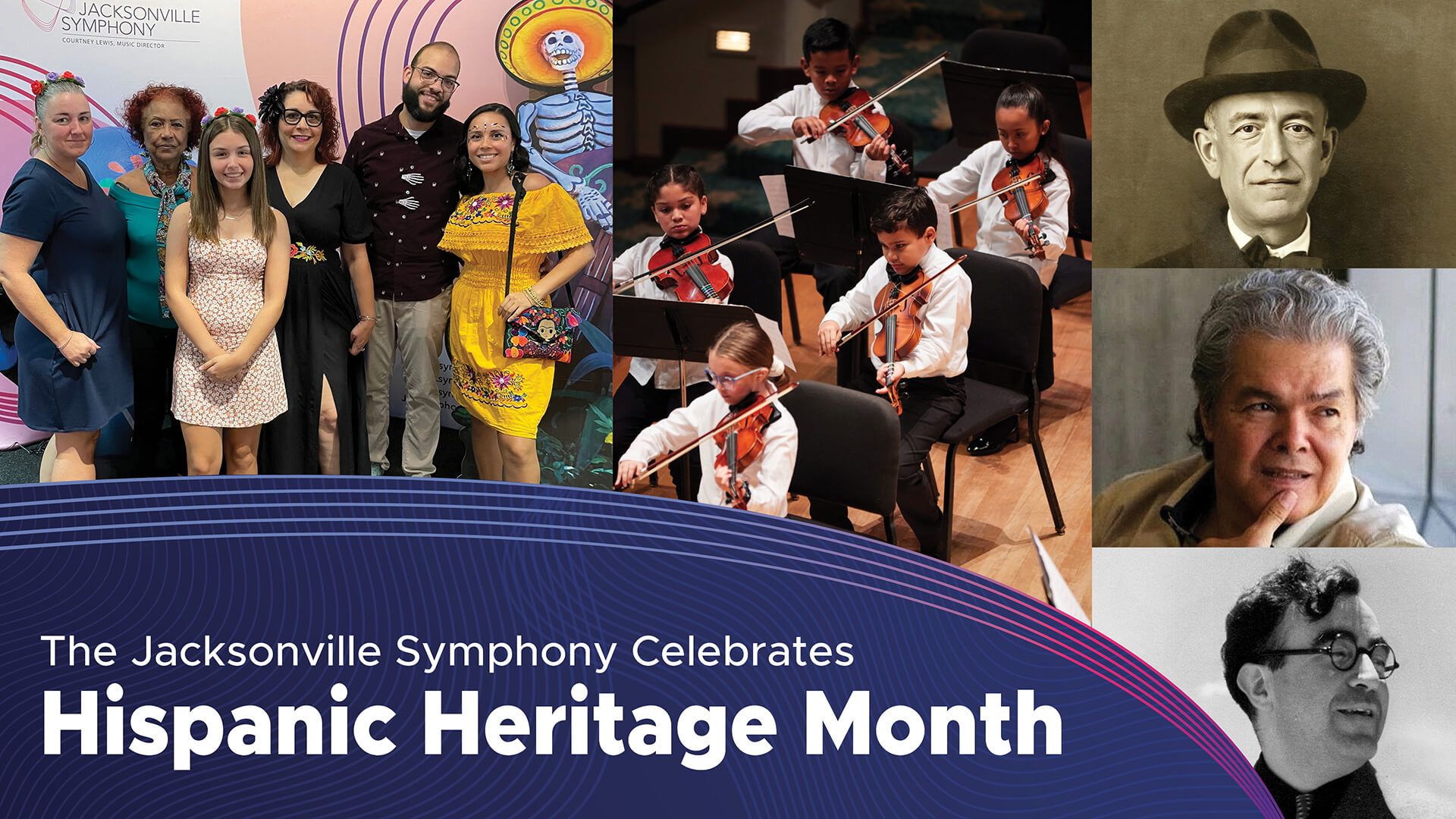
The Jacksonville Symphony Celebrates Hispanic Heritage Month
The Jacksonville Symphony celebrates Hispanic Heritage Month by spotlighting a few of the incredibly talented Hispanic composers who have shaped musical history and exciting moments taking place at the Symphony in the present day.
Leaving an Indelible Mark in History: Hispanic Composers
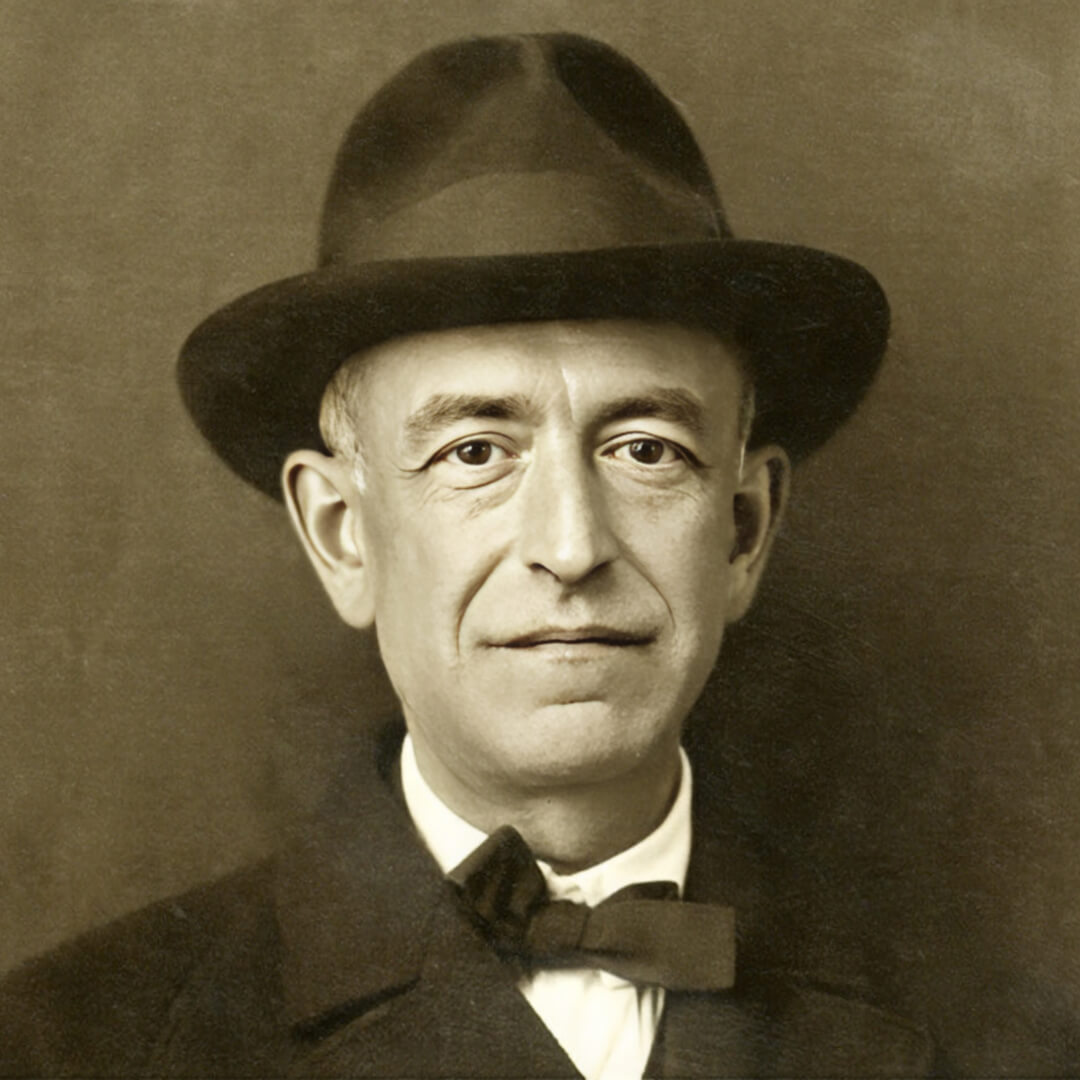 Manuel de Falla (1876-1946), a prominent Spanish composer, left a lasting mark on the world of music in the early 20th century. His Andalusian roots heavily influenced his works, blending Spanish folk elements with modernist techniques, resulting in an innovative musical style. Falla's compositions feature rich harmonies, intricate rhythms and a distinct Spanish identity. His artistic brilliance profoundly impacted Spanish music. Some of his notable works include "El amor brujo," "Noches en los jardines de España," and "El Sombrero de tres picos" (The Three-Cornered Hat). The Jacksonville Symphony will perform the latter as part of its Symphony in 60 Series opening performance, Classical Mix Tape, on October 26.
Manuel de Falla (1876-1946), a prominent Spanish composer, left a lasting mark on the world of music in the early 20th century. His Andalusian roots heavily influenced his works, blending Spanish folk elements with modernist techniques, resulting in an innovative musical style. Falla's compositions feature rich harmonies, intricate rhythms and a distinct Spanish identity. His artistic brilliance profoundly impacted Spanish music. Some of his notable works include "El amor brujo," "Noches en los jardines de España," and "El Sombrero de tres picos" (The Three-Cornered Hat). The Jacksonville Symphony will perform the latter as part of its Symphony in 60 Series opening performance, Classical Mix Tape, on October 26.
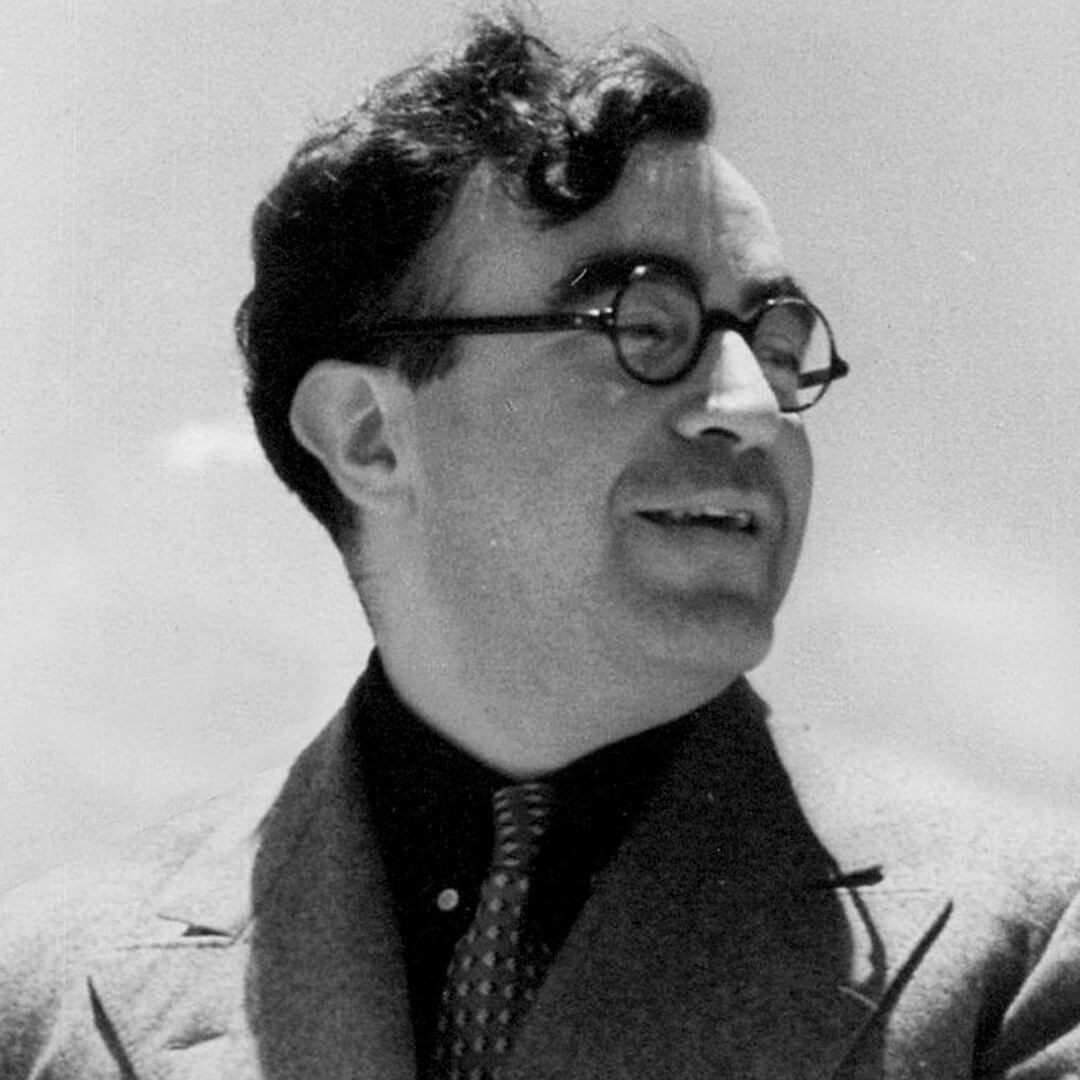 Carlos Chávez (1899-1978) was a Mexican composer, conductor and music educator, regarded as one of the leading figures in 20th century Latin-American music. He played a significant role in promoting and developing contemporary Mexican music. As the founder of the Mexican Symphony Orchestra and the Mexican National Symphony Orchestra, Chávez worked tirelessly to support the performance and preservation of Mexican folk and indigenous music alongside Western classical traditions. His compositions often incorporated indigenous themes and rhythmic patterns, blending them with modernist techniques. Chávez's influential contributions continue to shape and inspire the musical landscape in Mexico and beyond. The Jacksonville Symphony performed his piece Symphony No. 2, "Sinfonía India" in the 2022/23 Season for the Copland’s Rodeo performances. Photo by Archivo Miguel Covarrubias.
Carlos Chávez (1899-1978) was a Mexican composer, conductor and music educator, regarded as one of the leading figures in 20th century Latin-American music. He played a significant role in promoting and developing contemporary Mexican music. As the founder of the Mexican Symphony Orchestra and the Mexican National Symphony Orchestra, Chávez worked tirelessly to support the performance and preservation of Mexican folk and indigenous music alongside Western classical traditions. His compositions often incorporated indigenous themes and rhythmic patterns, blending them with modernist techniques. Chávez's influential contributions continue to shape and inspire the musical landscape in Mexico and beyond. The Jacksonville Symphony performed his piece Symphony No. 2, "Sinfonía India" in the 2022/23 Season for the Copland’s Rodeo performances. Photo by Archivo Miguel Covarrubias.
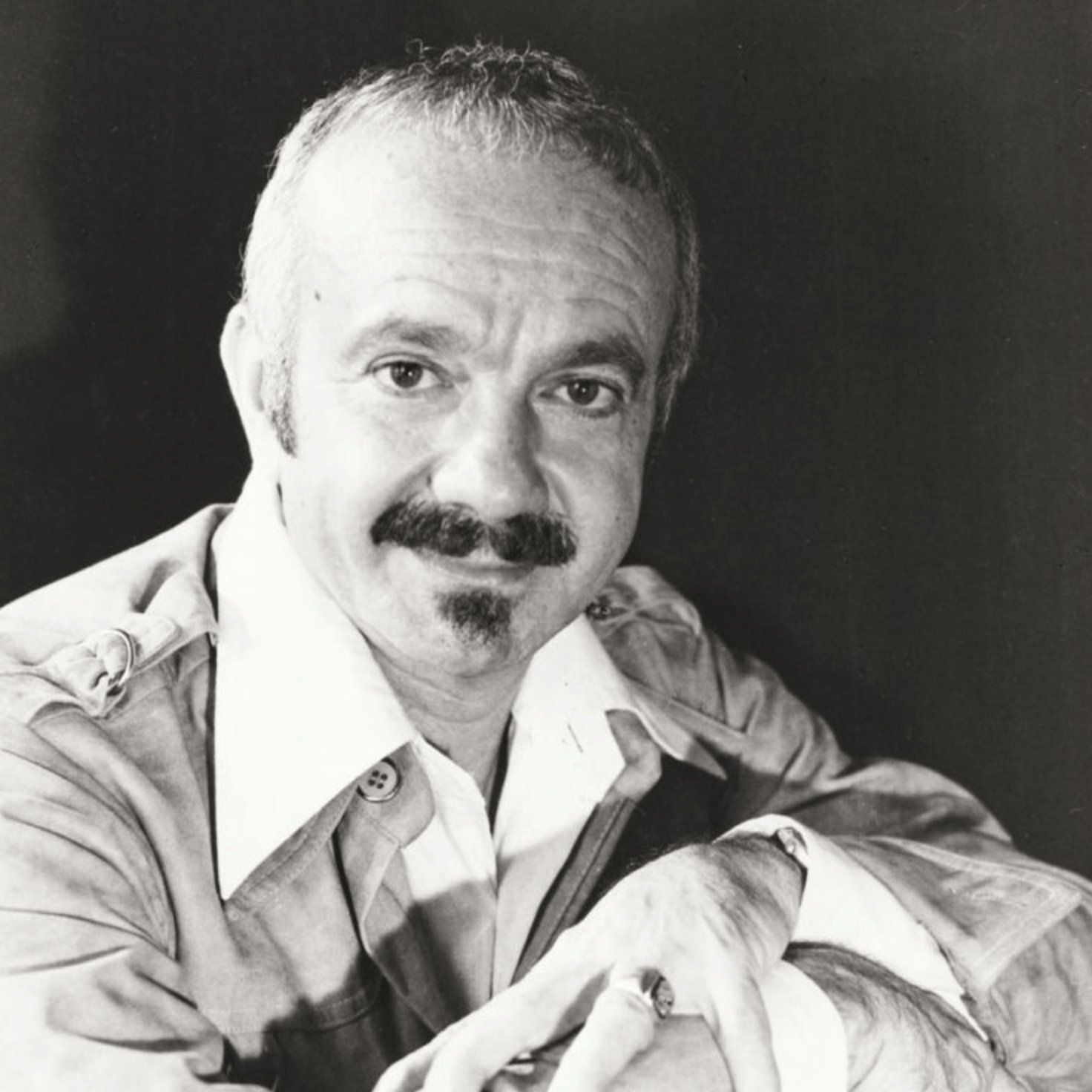 Astor Piazzolla (1921-1992) was an Argentinian composer, bandoneon player and arranger, widely regarded as the master of modern tango. Born in Mar del Plata, Argentina, Piazzolla revolutionized traditional tango music by infusing it with elements of jazz and classical music, creating what he called "nuevo tango." His innovative approach and virtuosic playing on the bandoneon—a type of accordion—pushed the boundaries of the genre. Piazzolla's iconic compositions, such as "Libertango" and "Adiós Nonino," gained international recognition and have been performed and recorded by numerous artists across the globe. His profound impact on tango and contemporary music has solidified him as one of the most influential composers of the 20th century. The Jacksonville Symphony performs his famous work, The Four Seasons of Buenos Aires, on February 29 as part of the Symphony in 60 Series.
Astor Piazzolla (1921-1992) was an Argentinian composer, bandoneon player and arranger, widely regarded as the master of modern tango. Born in Mar del Plata, Argentina, Piazzolla revolutionized traditional tango music by infusing it with elements of jazz and classical music, creating what he called "nuevo tango." His innovative approach and virtuosic playing on the bandoneon—a type of accordion—pushed the boundaries of the genre. Piazzolla's iconic compositions, such as "Libertango" and "Adiós Nonino," gained international recognition and have been performed and recorded by numerous artists across the globe. His profound impact on tango and contemporary music has solidified him as one of the most influential composers of the 20th century. The Jacksonville Symphony performs his famous work, The Four Seasons of Buenos Aires, on February 29 as part of the Symphony in 60 Series. 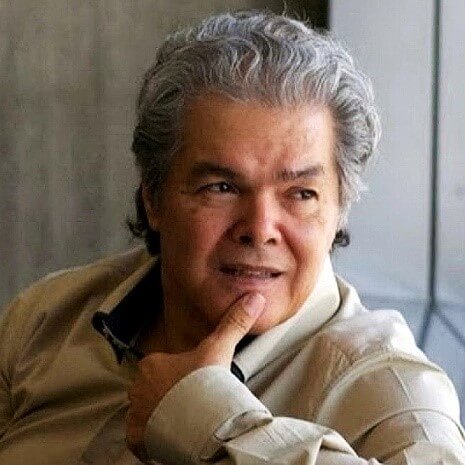 Arturo Márquez (1950-Present) is a famous Mexican composer and conductor, celebrated for his captivating compositions that blend elements of Mexican folk music with contemporary classical styles. Hailing from Álamos, Sonora, Márquez has established himself as a prominent figure in the music world. His works reflect his deep appreciation for the cultural heritage of Mexico. One of his most famous compositions is "Danzón No. 2," which has gained international acclaim and has become an iconic representation of Mexican contemporary music. This piece was also featured in the Jacksonville Symphony’s Copland’s Rodeo performances last season. Márquez's musical contributions have earned him widespread recognition, and his enduring legacy continues to inspire musicians and audiences around the world.
Arturo Márquez (1950-Present) is a famous Mexican composer and conductor, celebrated for his captivating compositions that blend elements of Mexican folk music with contemporary classical styles. Hailing from Álamos, Sonora, Márquez has established himself as a prominent figure in the music world. His works reflect his deep appreciation for the cultural heritage of Mexico. One of his most famous compositions is "Danzón No. 2," which has gained international acclaim and has become an iconic representation of Mexican contemporary music. This piece was also featured in the Jacksonville Symphony’s Copland’s Rodeo performances last season. Márquez's musical contributions have earned him widespread recognition, and his enduring legacy continues to inspire musicians and audiences around the world.
Breaking New Ground: Hispanic Artists
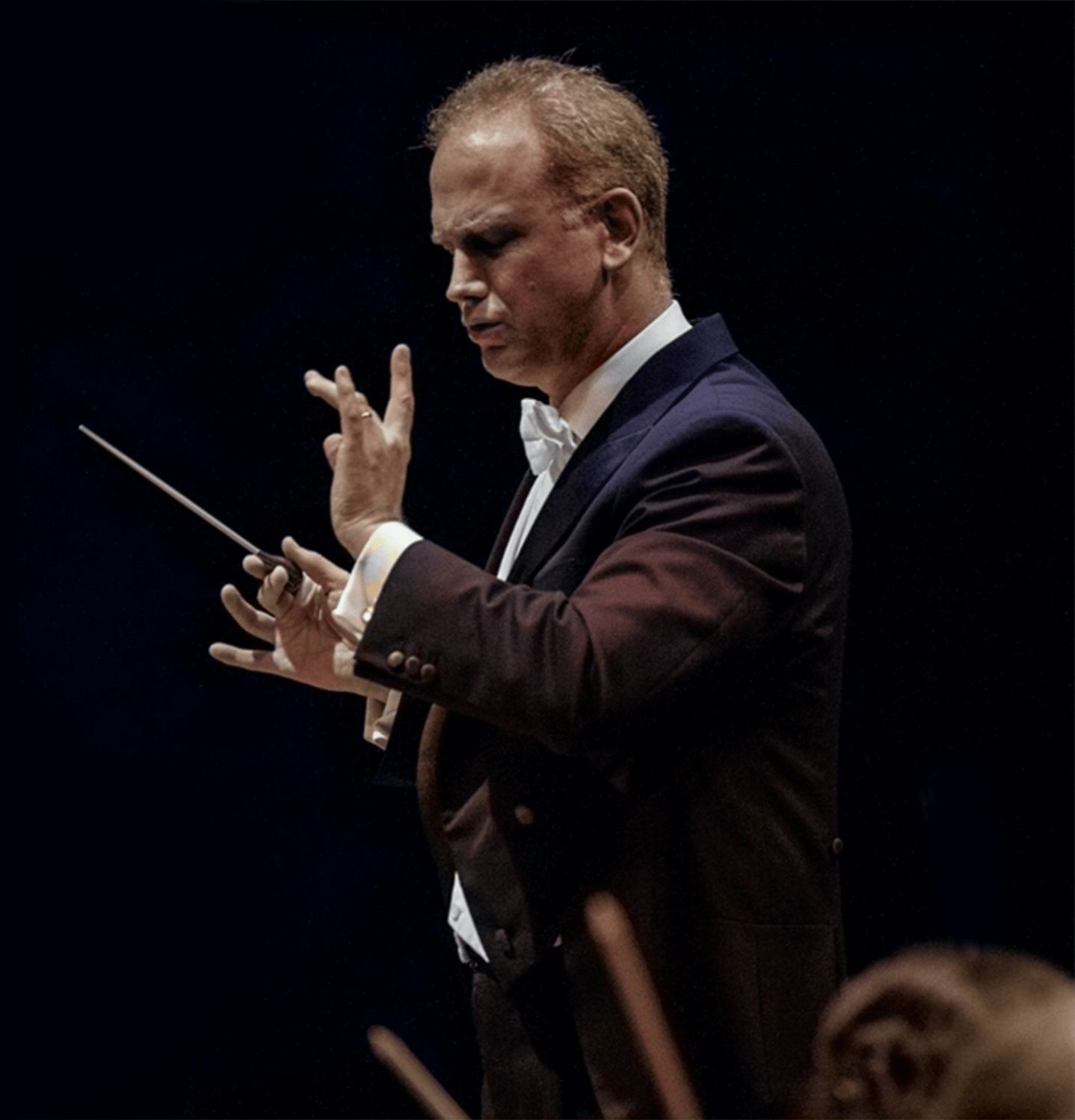 Last spring, we were privileged to be joined by Musical America’s 2019 Conductor of the Year, Carlos Miguel Prieto, for our performances of Copland’s Rodeo. Recognized as a highly influential cultural leader and the foremost Mexican conductor of his generation, he was the Music Director of the Orquesta Sinfónica Nacional de México from 2007 until June of 2022. Prieto was Music Director of the Louisiana Philharmonic Orchestra where he led the cultural renewal of New Orleans following Hurricane Katrina. In 2008, he was appointed as the Music Director of the Orquesta Sinfónica de Minería, a hand-picked orchestra that performs a two-month long series of summer programs in Mexico City. Prieto will begin his tenure as Music Director of the North Carolina Symphony this season. Recent highlights include engagements with the London Philharmonic Orchestra, NDR Elbphilharmonie and many others across the globe. Prieto is known for championing Latin American music and has conducted over 100 world premieres of works by Mexican and American composers, many of which were commissioned by him.
Last spring, we were privileged to be joined by Musical America’s 2019 Conductor of the Year, Carlos Miguel Prieto, for our performances of Copland’s Rodeo. Recognized as a highly influential cultural leader and the foremost Mexican conductor of his generation, he was the Music Director of the Orquesta Sinfónica Nacional de México from 2007 until June of 2022. Prieto was Music Director of the Louisiana Philharmonic Orchestra where he led the cultural renewal of New Orleans following Hurricane Katrina. In 2008, he was appointed as the Music Director of the Orquesta Sinfónica de Minería, a hand-picked orchestra that performs a two-month long series of summer programs in Mexico City. Prieto will begin his tenure as Music Director of the North Carolina Symphony this season. Recent highlights include engagements with the London Philharmonic Orchestra, NDR Elbphilharmonie and many others across the globe. Prieto is known for championing Latin American music and has conducted over 100 world premieres of works by Mexican and American composers, many of which were commissioned by him.
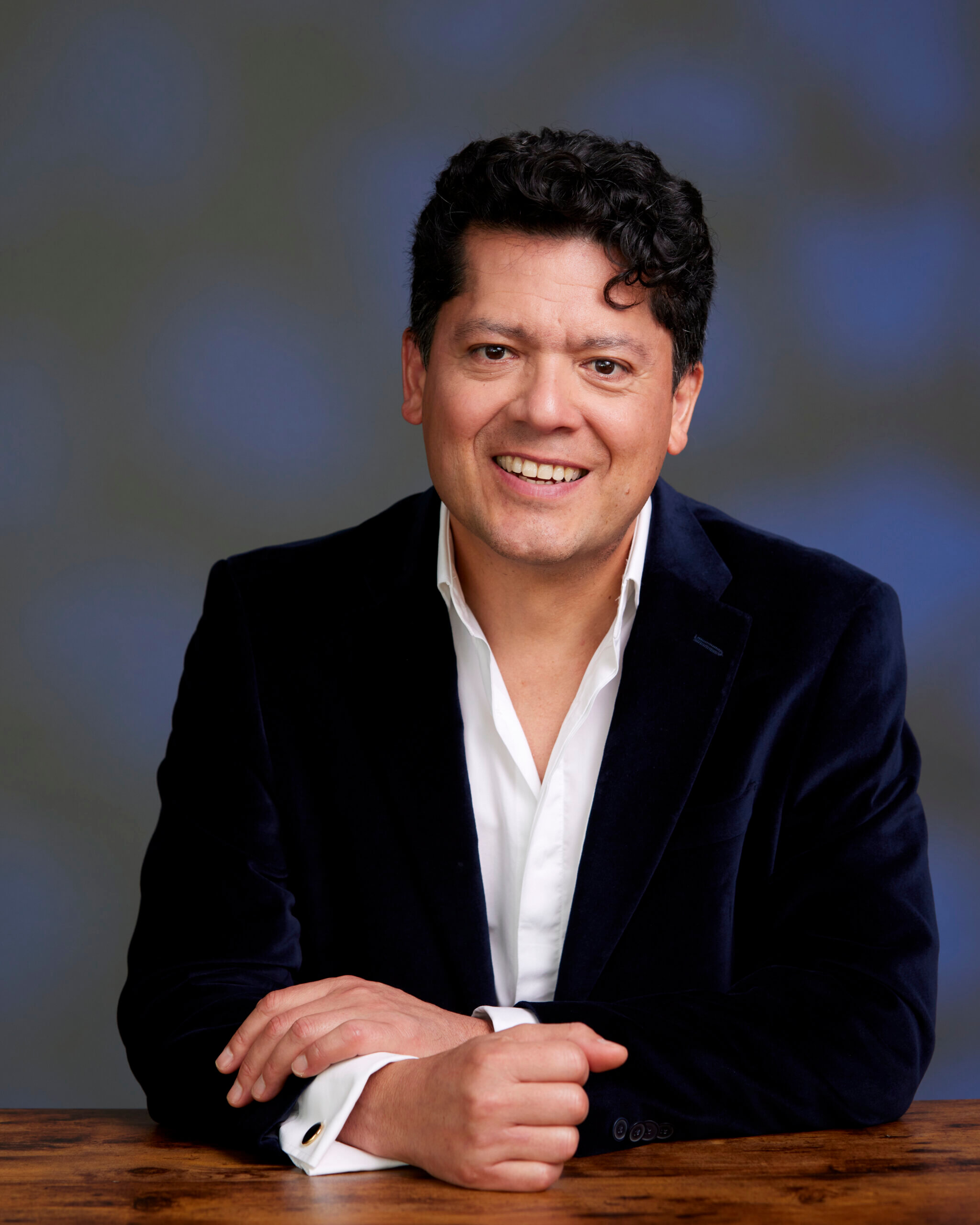 The Jacksonville Symphony is proud to represent several world-class Hispanic musicians who have been performing on the Jacoby Symphony Hall stage for decades. Jorge A. Peña is a Jacksonville Symphony violist as well as the Artistic Director of St. Augustine Music Festival, Artistic Director and Conductor of the Golden Isles Youth Orchestra and the General Manager of the Coastal Symphony of Georgia. He speaks on the importance of the Jacksonville Symphony celebrating Hispanic Heritage Month and embracing diversity in music.
The Jacksonville Symphony is proud to represent several world-class Hispanic musicians who have been performing on the Jacoby Symphony Hall stage for decades. Jorge A. Peña is a Jacksonville Symphony violist as well as the Artistic Director of St. Augustine Music Festival, Artistic Director and Conductor of the Golden Isles Youth Orchestra and the General Manager of the Coastal Symphony of Georgia. He speaks on the importance of the Jacksonville Symphony celebrating Hispanic Heritage Month and embracing diversity in music.
“My belief that good music is universal inspired me to reach new heights. The awareness of being a Latino in the beautiful classical music field affords me the chance to be a good ambassador and role model for new generations of Hispanic students. I was born and raised in Honduras, but I have been living and playing in the Jacksonville Symphony for 25 years. I hope my career continues to be an inspiration to attract more Latinos into Jacoby Symphony Hall. In my opinion, the study of classical music in anyone's curriculum is a must. It teaches the discipline needed in other fields, and it makes better citizens and enhances all people’s lives.” Photo by Chad Dennis
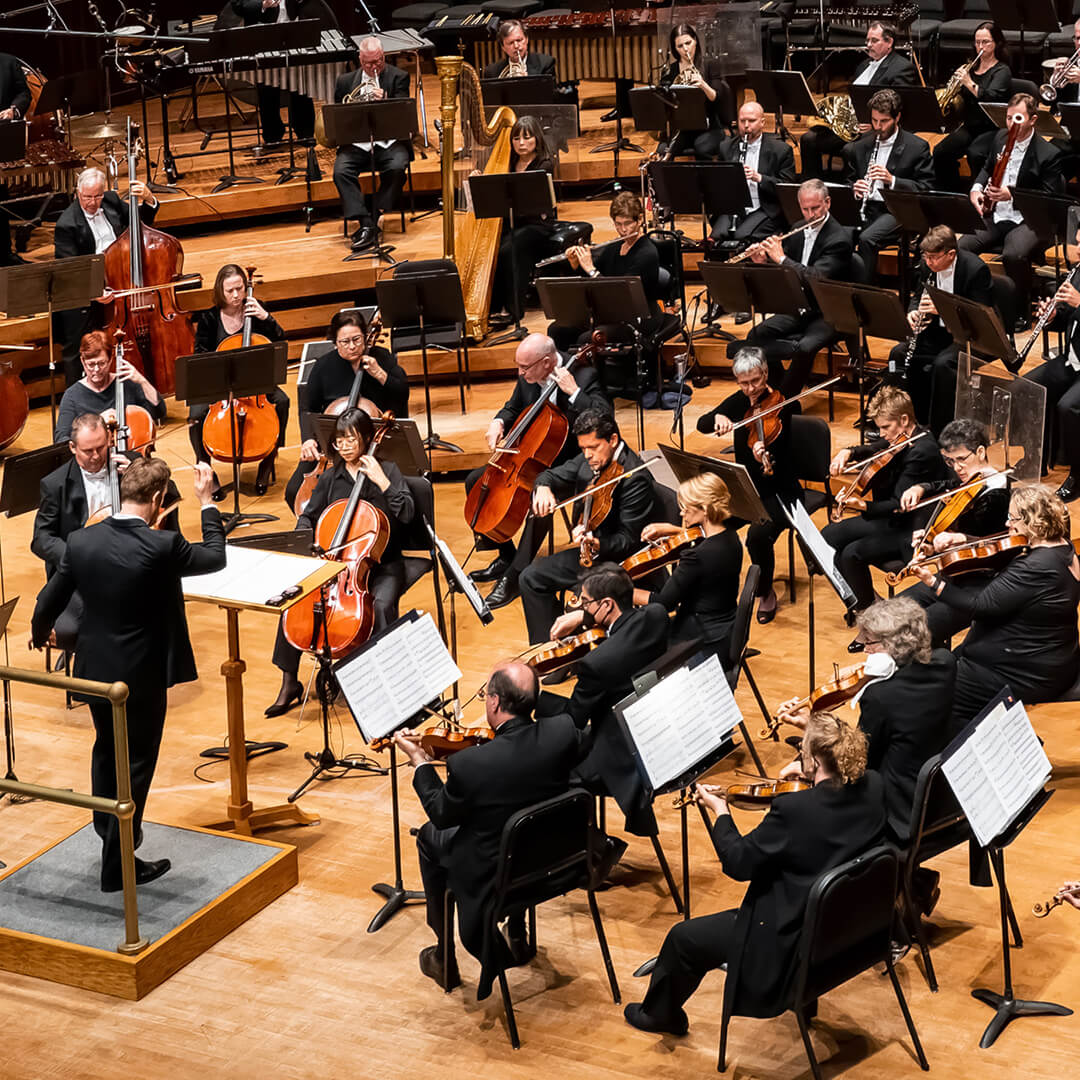
The Jacksonville Symphony also strives to make a difference in the arts so that musical opportunities are accessible to all, both on and off the stage, through its robust Diversity, Equity and Inclusion (DEI) initiatives. Part of the Symphony’s DEI Strategy is to diversify audiences who attend the Symphony’s concerts and to recruit and retain musicians from a wide variety of backgrounds and experiences. Partnering with the Symphony to create an orchestra that is reflective of the community it serves is Sphinx, a social justice organization based in Detroit whose mission is to “transform lives through the power of diversity in the arts.”
Musicians who are just beginning their musical journeys, seasoned professionals, administrators and entrepreneurs are among the many individuals who Sphinx supports. The organization provides a wide variety of services that highlight musicians’ achievements and foster their artistic growth. These include year-round tuition-free education, performances, tours of four premiere ensembles, creative youth development, sector-wide partnerships with 300+ organizations, new commissions by African American and Hispanic composers and many other initiatives.
In the 2022/23 Season, the Symphony was joined by several talented, Hispanic musicians for a variety of performances. Starting this September, the Symphony looks forward to more Sphinx musicians joining its roster for a spectacular season of music.
Shaping the Future Through Music
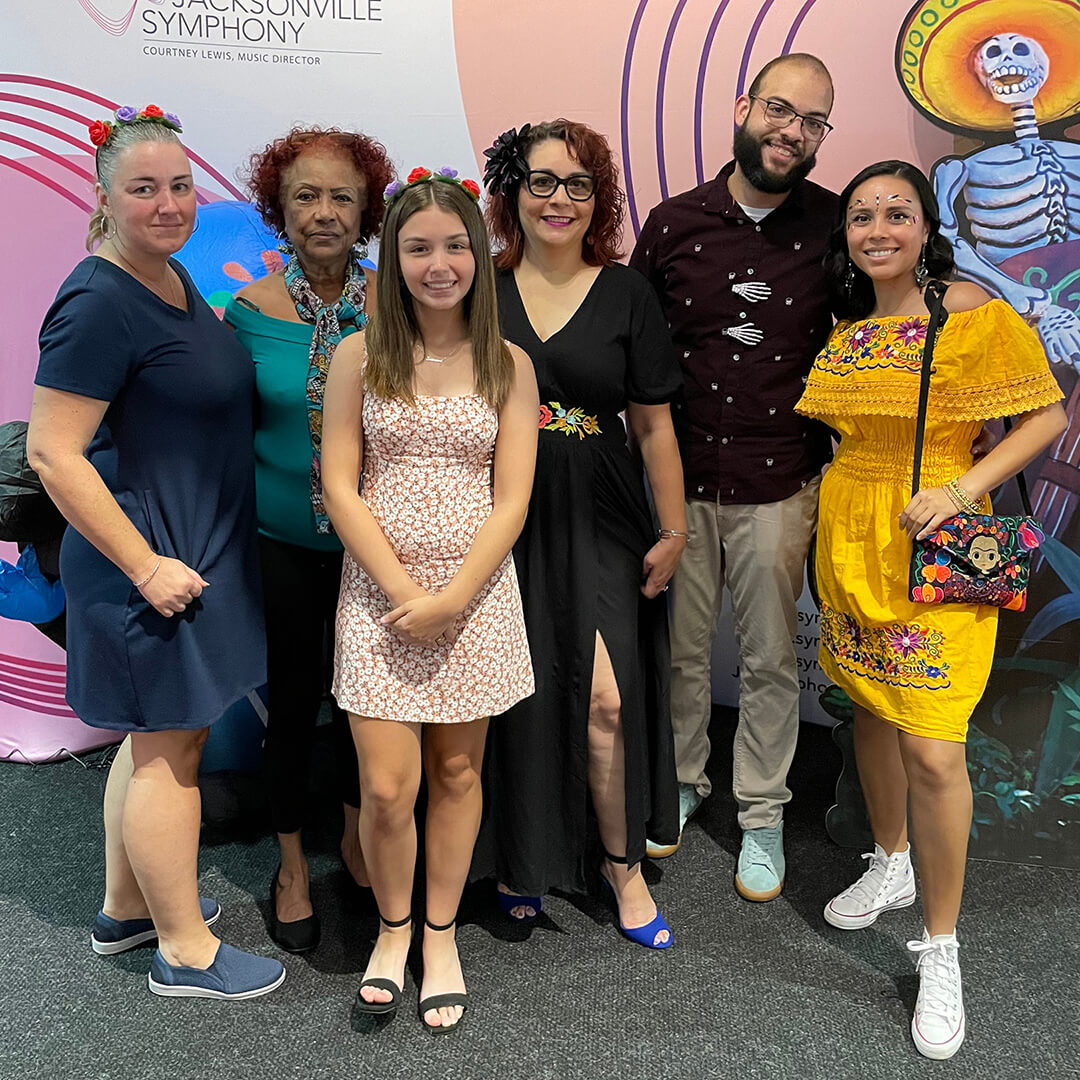 On October 9, 2022, the Jacksonville Symphony performed Día de los Muertos, a special family concert celebrating the two-day Hispanic holiday that spiritually reunites the living and dead. JSYO Music Director and Assistant Conductor Grant O’Brien wrote this note explaining the significance of this cultural program, “In the Día de los Muertos program, the Jacksonville Symphony explored the time-honored tradition celebrated by our southern neighbors in Mexico and other parts of Central America. On Día de los Muertos, families honor their deceased relatives through parades, ofrendas (offerings), feasts and a host of other unique traditions. In this performance, we hoped to capture the cultural significance of this national holiday by pairing pieces by Mexican and Spanish composers with discussions about the holiday’s fascinating origins and customs. Blending the beautiful tapestries of music by Márquez, Falla and [Ernesto] Lecuona, the Jacksonville Symphony offered an educational, rewarding and entertaining concert experience for families of any background.” This evening was a shining highlight of the 2022/23 Season, leaving our listeners inspired and in awe of diverse musical voices.
On October 9, 2022, the Jacksonville Symphony performed Día de los Muertos, a special family concert celebrating the two-day Hispanic holiday that spiritually reunites the living and dead. JSYO Music Director and Assistant Conductor Grant O’Brien wrote this note explaining the significance of this cultural program, “In the Día de los Muertos program, the Jacksonville Symphony explored the time-honored tradition celebrated by our southern neighbors in Mexico and other parts of Central America. On Día de los Muertos, families honor their deceased relatives through parades, ofrendas (offerings), feasts and a host of other unique traditions. In this performance, we hoped to capture the cultural significance of this national holiday by pairing pieces by Mexican and Spanish composers with discussions about the holiday’s fascinating origins and customs. Blending the beautiful tapestries of music by Márquez, Falla and [Ernesto] Lecuona, the Jacksonville Symphony offered an educational, rewarding and entertaining concert experience for families of any background.” This evening was a shining highlight of the 2022/23 Season, leaving our listeners inspired and in awe of diverse musical voices.
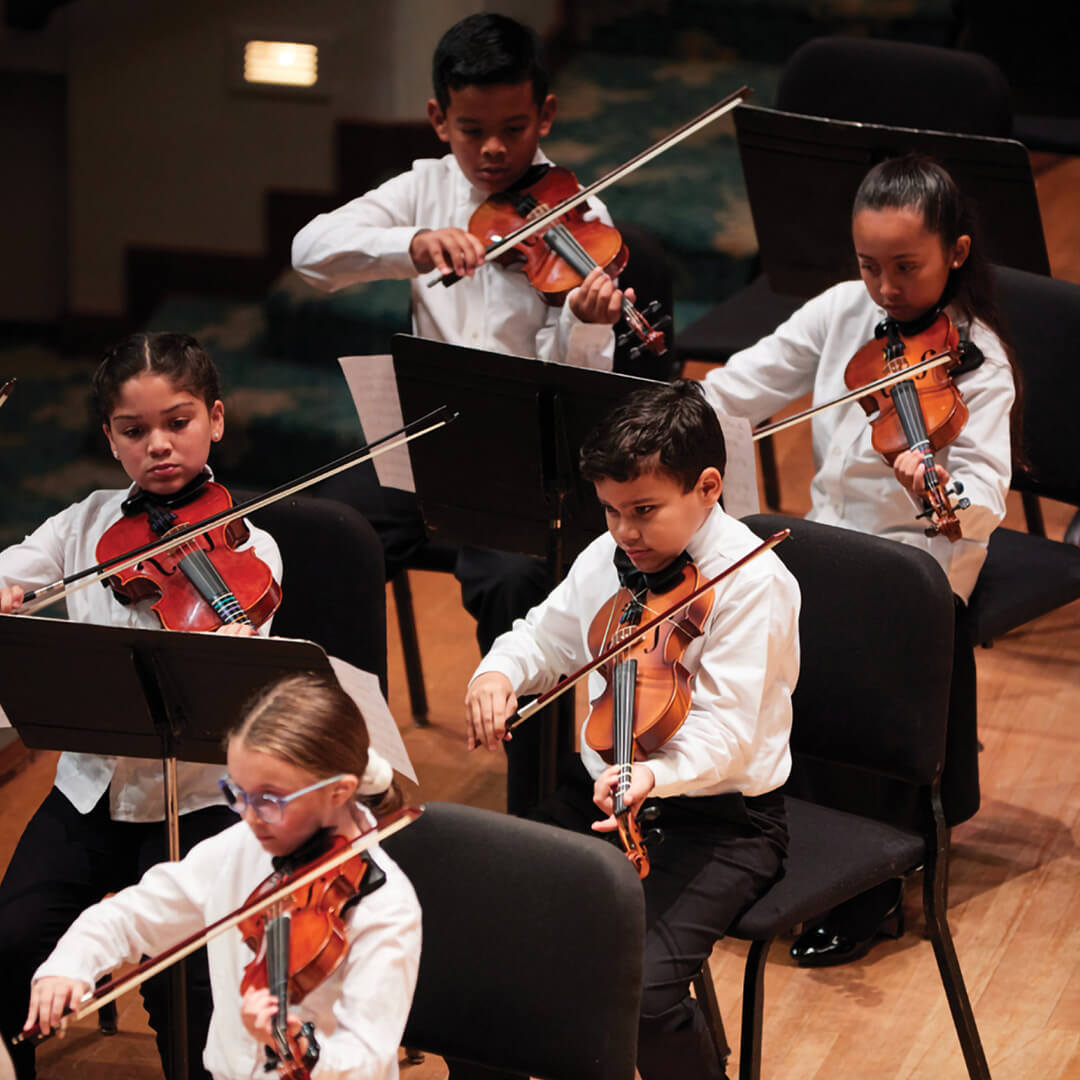
The Jacksonville Symphony is proud to offer a variety of music education programs designed to enrich the lives of students from all backgrounds. The Jacksonville Symphony Youth Orchestras (JSYO) program in particular serves more than 200 talented musicians from all over Northeast Florida through six levels of ensembles, two full symphonies and four levels of string ensembles. The ensembles vary by repertoire and technical advancement and consist of many Spanish speaking students. Through these programs, the Symphony fosters student growth and embraces DEI as its core principles, creating a bright future for music.
Behind the Bows
Welcome to New Musicians
 Join us in giving a warm welcome to the Jacksonville Symphony’s newest musicians who will be taking the stage for the 2023/24 Season!
Join us in giving a warm welcome to the Jacksonville Symphony’s newest musicians who will be taking the stage for the 2023/24 Season!
- Yun-Ting Kuo (Principal Viola)
- Darryl Manley (Associate Principal Viola)
- Bobby Gallagher (2nd Trumpet)
- Ben Shaposhnikov (3rd/Utility Trumpet)
- Jeehee Kang (Violin)
- Megan Rios (Violin)
- Romona Merritt (Viola)
- Carlos Lozano (Viola)
- Maya Stone (Bassoon 2)
- Mwakudua waNgure (Violin)
- Jordan Curry (Violin)
- Gabriela Peña (Violin)
- Julian Maddox (Violin)
- Sandro Leal-Santiesteban (Violin)
- Isaac Fernandez Hernandez (Percussion)
- Dana Dominguez (Percussion)
Sphinx is a social justice organization based in Detroit whose mission is to “transform lives through the power of diversity in the arts.” The organization supports the Symphony’s Diversity, Equity and Inclusion (DEI) mission to make musical opportunities accessible to all. Sphinx provides a wide variety of services that highlight musicians’ achievements and foster their artistic growth. These include year-round tuition-free education, performances, tours of premier ensembles and more.
Along for Every Song
Haley Cox
 1.) Tell us about yourself and your position at the Jacksonville Symphony.
"I have a classical musical background and hold two degrees in performance, so I feel really lucky to be able to work in a field that I love! My role in the Symphony is focused on the community as a whole and falls under both the Education and Marketing departments' umbrellas. I work with corporations, businesses, churches, social groups and retirement facilities to help them engage with the Symphony and attend our performances, and I also work with schools and teachers to coordinate field trips and help them participate in our many educational programs. I kind of do a little bit of everything!"
2.) What is your favorite thing about music?
"I think my favorite thing about music is the universality of it. Whether we're listening to Wolfgang Amadeus Mozart, Metallica or Mariah Carey, we're all nodding our head or tapping our foot. Every time period, demographic, country and culture has their own voice and use for music, so it's something that connects us all while still highlighting the individual histories and personalities of the people who compose and perform it."
3.) What is a fun fact about you that many people may not know?
"I was fortunate enough to work as an opera singer before this! I loved getting to work alongside so many other talented performers, musicians, crews and directors, and I really treasure those experiences and productions. My time in the spotlight was a lot of fun, but I'm glad to now devote my creative energy to baking focaccia."
1.) Tell us about yourself and your position at the Jacksonville Symphony.
"I have a classical musical background and hold two degrees in performance, so I feel really lucky to be able to work in a field that I love! My role in the Symphony is focused on the community as a whole and falls under both the Education and Marketing departments' umbrellas. I work with corporations, businesses, churches, social groups and retirement facilities to help them engage with the Symphony and attend our performances, and I also work with schools and teachers to coordinate field trips and help them participate in our many educational programs. I kind of do a little bit of everything!"
2.) What is your favorite thing about music?
"I think my favorite thing about music is the universality of it. Whether we're listening to Wolfgang Amadeus Mozart, Metallica or Mariah Carey, we're all nodding our head or tapping our foot. Every time period, demographic, country and culture has their own voice and use for music, so it's something that connects us all while still highlighting the individual histories and personalities of the people who compose and perform it."
3.) What is a fun fact about you that many people may not know?
"I was fortunate enough to work as an opera singer before this! I loved getting to work alongside so many other talented performers, musicians, crews and directors, and I really treasure those experiences and productions. My time in the spotlight was a lot of fun, but I'm glad to now devote my creative energy to baking focaccia."Mary Waldroff
 1.) Tell us about yourself and your position at the Jacksonville Symphony.
"I am a third generation Floridian and have over 20 years of experience in nonprofit and commercial business management. The bulk of my career has been spent in the arts, and I have managed art galleries, owned an art gallery, worked for two university art museums, was Program Director for a community art center and was the city Arts Administrator for Casselberry, Florida. My development experience began as a grant-writer for a regional arts center, then grew into roles as the Director of Development for Brevard College, Director of Major and Planned Gifts for a nonprofit hospice and most recently as a Major Gifts Officer for the Kappa Kappa Gamma Foundation.
As the Director of Corporate Giving for the Jacksonville Symphony, I am responsible for Corporate Gifts. I look forward to working with businesses in the Jacksonville community to raise awareness of the Symphony through the stewardship of existing donors and prospecting for those businesses not yet in our donor portfolio.
I am thrilled to be back to my first love, the arts, and believe that music is indeed essential for building healthy communities. As a fourth-generation musician, I am honored to be able to represent an organization such as the Jacksonville Symphony."
2.) What is your favorite type of music to listen to?
"I am very eclectic and love almost any kind of music. My favorite classical composers are Frédéric Chopin and Claude Debussy, and I look forward to hearing the newly commissioned pieces that the Jacksonville Symphony will be performing this season. I grew up studying piano and voice and especially love 19th-century hymns and carols. I also love acoustic folk and world music and am currently, slightly obsessed with the soundtrack from Ted Lasso."
3.) What are some of your hobbies?
"I love to cook, explore new cuisines, travel and read—especially historical fiction."
1.) Tell us about yourself and your position at the Jacksonville Symphony.
"I am a third generation Floridian and have over 20 years of experience in nonprofit and commercial business management. The bulk of my career has been spent in the arts, and I have managed art galleries, owned an art gallery, worked for two university art museums, was Program Director for a community art center and was the city Arts Administrator for Casselberry, Florida. My development experience began as a grant-writer for a regional arts center, then grew into roles as the Director of Development for Brevard College, Director of Major and Planned Gifts for a nonprofit hospice and most recently as a Major Gifts Officer for the Kappa Kappa Gamma Foundation.
As the Director of Corporate Giving for the Jacksonville Symphony, I am responsible for Corporate Gifts. I look forward to working with businesses in the Jacksonville community to raise awareness of the Symphony through the stewardship of existing donors and prospecting for those businesses not yet in our donor portfolio.
I am thrilled to be back to my first love, the arts, and believe that music is indeed essential for building healthy communities. As a fourth-generation musician, I am honored to be able to represent an organization such as the Jacksonville Symphony."
2.) What is your favorite type of music to listen to?
"I am very eclectic and love almost any kind of music. My favorite classical composers are Frédéric Chopin and Claude Debussy, and I look forward to hearing the newly commissioned pieces that the Jacksonville Symphony will be performing this season. I grew up studying piano and voice and especially love 19th-century hymns and carols. I also love acoustic folk and world music and am currently, slightly obsessed with the soundtrack from Ted Lasso."
3.) What are some of your hobbies?
"I love to cook, explore new cuisines, travel and read—especially historical fiction."